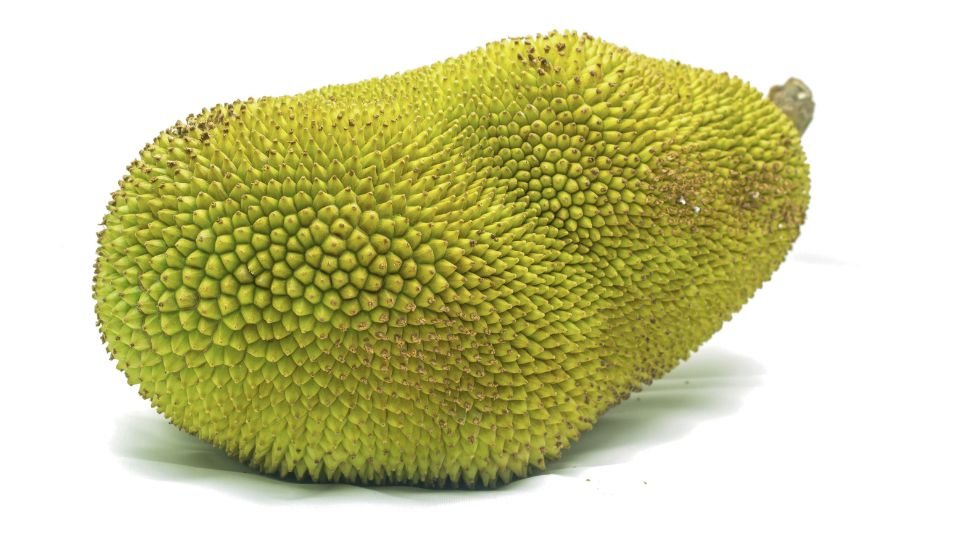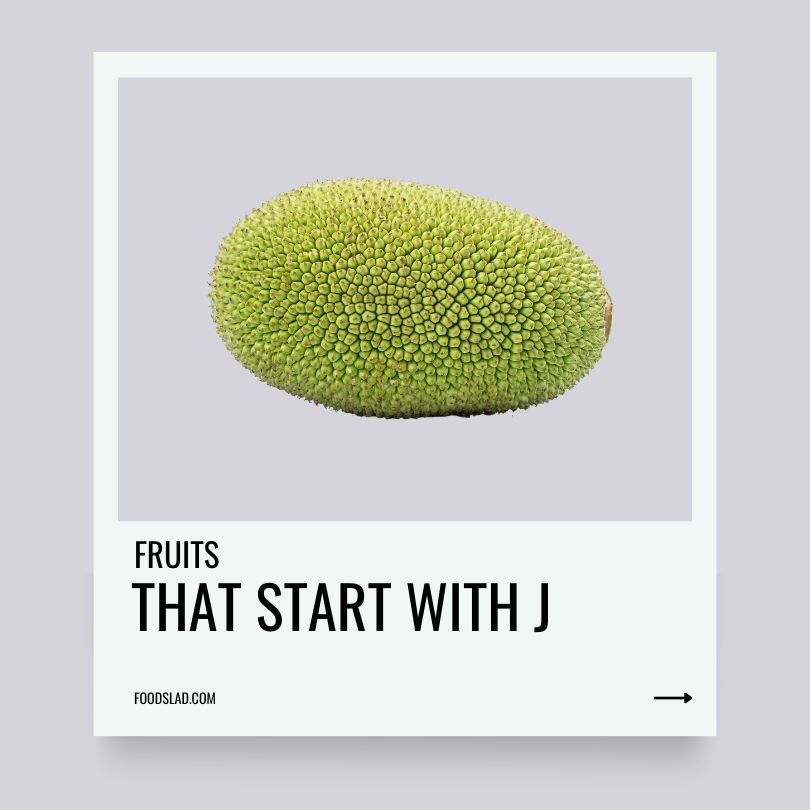Fruits are an essential part of a healthy diet. They are packed with vitamins, minerals, fiber, and antioxidants that help boost your immune system and improve your overall health. While you may be familiar with some common fruits like apples, oranges, and bananas, there are many other fruits out there that you may not have heard of fruits that start with j before. In this article, we will be exploring different fruits that start with the letter j.

What are some fruits that start with j?
Here is the list of fruits that start j –
1. Jackfruit –
Jackfruit is a large tropical fruit native to India and Southeast Asia. It has a sweet, fruity flavor that is often compared to a combination of pineapple, mango, and banana. The flesh of the fruit is yellow and can be eaten fresh or cooked. Jackfruit is also a good source of fiber and vitamin C.
2. Jujube –
Jujube is a small, sweet fruit that is native to China. It has thin, edible skin and a crisp, apple-like texture. Jujubes are often dried and used in Chinese traditional medicine to treat a range of ailments. They are also rich in vitamin C and antioxidants.
3. Java Apple –
Java apple, also known as rose apple, is a fruit that is native to Southeast Asia. It has a crisp, juicy texture and a slightly sweet flavor. Java apples are often used in salads or eaten as a snack. They are also a good source of vitamin C.
4. Jabuticaba –
Jabuticaba is a small, purple fruit that is native to Brazil. It has a sweet, grape-like flavor and a thick, chewy skin. Jabuticaba is often used to make jams, jellies, and wines. It is also rich in antioxidants and vitamin C.
5. Jostaberry –
Jostaberry is a cross between a blackcurrant and a gooseberry and is one of the fruits starting with j. It has a tart, tangy flavor and is often used to make jams and jellies. Jostaberries are also a good source of vitamin C and antioxidants.
6. Jambolan –
Jambolan, also known as Java plum, is a fruit or food that is native to India. It has a sweet, tangy flavor and is often used to make jams, jellies, and desserts. Jambolan is also rich in vitamin C and antioxidants.
7. Jamaican Cherry –
Jamaican cherry, also known as the West Indian cherry, is a fruit that is native to the Caribbean. It has a sweet, juicy flavor and is often used to make jams, jellies, and sauces. Jamaican cherry is also a good source of vitamin C and antioxidants.
8. Juneberry –
Juneberry, also known as serviceberry, is a fruit that is native to North America. It has a sweet, juicy flavor and is often used to make jams, jellies, and pies. Juneberry is also a good source of vitamin C and antioxidants.
9. Jatropha –
Jatropha is a fruit that is native to Central and South America and is one of the fruits that start with j in English. It has a sweet, nutty flavor and is often used to make a variety of dishes, including soups and stews. Jatropha is also rich in vitamin C and antioxidants.
10. Japanese Persimmon –
Japanese persimmon, also known as kaki, is a fruit that is native to Japan. It has a sweet, honey-like flavor and is often eaten fresh or dried. Japanese persimmon is also a good source of fiber and antioxidants.
11. Jojoba –
Jojoba is a fruit that is native to the southwestern United States and Mexico. It has a nutty, buttery flavor and is often used to make a variety of cosmetic and skincare products. Jojoba is also rich in antioxidants and has anti-inflammatory properties.
12. Jujuberry –
Jujuberry, also known as Indian jujube, is a small fruit that is native to India. It has a sweet, crisp texture and is often eaten fresh or dried. Jujuberry is also a good source of vitamin C and antioxidants.
13. Japanese Plum –
Japanese plum, also known as ume, is a fruit that is native to Japan. It has a sour, tangy flavor and is often used to make pickles, sauces, and drinks. Japanese plum is also a good source of vitamin C and antioxidants.
14. Jelly Palm Fruit –
Jelly palm fruit, also known as pindo palm fruit, is a fruit that is native to South America. It has a sweet, tropical flavor and is often used to make jams, jellies, and drinks. Jelly palm fruit is also rich in vitamin C and antioxidants.
15. Jocote –
Jocote is a fruit that is native to Central America and one of the fruits that start with j. It has a sweet, tangy flavor and is often eaten fresh or used to make sauces and drinks. Jocote is also a good source of vitamin C and antioxidants.
16. Jacote –
Jacote, also known as hog plum, is a fruit that is native to the Caribbean and Central and South America. It has a tart, tangy flavor and is often used to make sauces, drinks, and jams. Jacote is also a good source of vitamin C and antioxidants.
17. Jatobá –
Jatobá is a fruit that is native to Brazil. It has a sweet, nutty flavor and is often used to make a variety of desserts and drinks. Jatobá is also a good source of vitamin C and antioxidants.
18. Jamun –
Jamun, also known as black plum, is a fruit that is native to India. It has a sweet, juicy flavor and is often used to make jams, jellies, and drinks. Jamun is also a good source of vitamin C and antioxidants.
19. Jostberry –
Jostberry, also known as red currant, is a fruit that is native to Europe. It has a tart, tangy flavor and is often used to make jams, jellies, and pies. Jostberry is also a good source of vitamin C and antioxidants.
20. Jicama –
Jicama is a root vegetable that is native to Mexico. It has a crisp, juicy texture and a slightly sweet flavor. Jicama is often used in salads and as a snack. It is also a good source of fiber and vitamin C.
The above-mentioned fruits that start with the letter j may be categorized under the main topic of food that starts with j.
Conclusion –
In conclusion, there are many fruits that start with j that offer a wide range of flavors and health benefits. From the sweet and tropical jackfruit to the tart and tangy jostaberry, these fruits are a delicious and nutritious addition to any diet. Whether you enjoy them fresh, cooked, or dried, be sure to incorporate some of these fruits into your meals for a boost of vitamins, minerals, and antioxidants.

